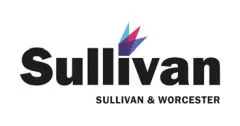This post is the second in a our Legal Hold Practical Advice Series.
You just learned that your company was (or probably will be) sued. How should you go about informing key employees to preserve evidence?
The first step is to issue a litigation hold notice to key individuals at the company who may have information relevant or potentially relevant to the lawsuit (or threatened lawsuit). The goal of the notice is to ensure the preservation of all information in the company's possession or control related to the claims or defenses in the lawsuit. Failure to issue the notice and implement the litigation hold could result in the inadvertent destruction of relevant evidence. No litigant wants to lose the ability to introduce evidence that would have been helpful in the lawsuit. Moreover, destruction of relevant evidence, regardless of whether it is helpful, could lead to judicial sanctions or a judgment against the company.
The litigation hold notice begins a process by which the company formally notifies key employees that they must preserve relevant information. A well-drafted notice need not be lengthy or filled with legal-ese, but it should contain at least the following information:
- Introduction - Why
Necessary: Explain why you are instituting a litigation
hold so that the recipients appreciate the importance of their
preservation efforts. Explaining the general purpose of the hold
may also help the recipients to identify relevant information. The
explanation need not describe the lawsuit or subpoena in detail. A
general description will usually suffice for purposes of the
notice.
The Company was recently sued by XYZ Corporation for breach of contract involving the sale of widgets. We are in the process of identifying all paper and electronic documents that may be relevant to the matter . . . You have been identified as a person who has had involvement with the XYZ contract, or may possess relevant documents or communications. We request your attention and assistance in preserving this relevant information for our attorney's use in the litigation matter as appropriate. - What is to be
Preserved: The legal hold notice becomes a checklist for
what kind of records should be preserved, including a time period
and description of the relevant categories of information.
As part of this process, you must preserve all documents or communications that may be relevant for the time period of [date range]. This notice applies to all paper and electronic documents and communications . . . . If you are unsure about whether certain paper or electronic documents are relevant, you should preserve them. . . . - Instruction for
Retention: The notice should be delivered to key employees
who know something about the issues in the lawsuit, and also to
relevant personnel in IT and paper records departments who control
the ability to suspend normal deletion policies. Recipients should
be informed that potentially relevant evidence may be found in
their paper files or on computers, external media, cloud-based
service, personal devices, or mobile devices.
To comply with our legal obligations, the Company must make all reasonable efforts to preserve, or suspend from deletion, overwriting, modification, or other destruction of all relevant paper or electronic data in your possession, custody, or control that is relevant to this litigation matter. - Defining the Scope:
Clearly identify the scope of what is considered a relevant
"document" that must be preserved. Employees should
understand that paper files, email, instant messages, chat
messages, or text messages are considered to be documents. This is
true whether such documents are stored on the network, on a laptop,
external device, or on a mobile device.
As used in this Notice, the terms "document", "data", and "information" are used in the broadest sense and apply not only to paper documents but also electronic documents or communications . . . . In short, all documents and information, in whatever form, that is relevant to this matter must be retained and preserved. - Mandatory
Preservation: Emphasize that preservation is mandatory,
and that failure to comply may diminish the company's ability
to prosecute its claims or defend itself in the lawsuit.
Preservation is mandatory. Electronically stored information is an important and potentially irreplaceable source of discovery in this matter. Failure to retain these documents or communications, whether intentionally or accidentally or to ignore this notice may result in the Company's inability to prosecute its claims or defend itself in this matter. Failure to do so could also result in financial and legal penalties against the Company that could negatively affect the outcome of this legal matter. You must take every reasonable step to preserve this information until further written notice. - Confidentiality:
Stress the confidential nature of the lawsuit and the company's
expectation that employees will not discuss it with each other or
outside the company unless approved by company counsel. The goal is
to decrease or eliminate discoverable communications by employees
who may inadvertently make statements that hurt the company without
the benefit of the bigger picture or all of the facts.
The company considers this litigation matter to be confidential and, unless otherwise permitted, you should not discuss, publish or disclose any information relating to this matter without permission from company counsel. - Request for
Assistance: Request the names of any additional
individuals that the recipients believe may have relevant
information.
If you are aware of any individuals or service providers not listed on this notice that you believe may have additional and relevant information, such as those who may be under your supervision, direction, or control, please notify company counsel. Additionally, if you know of any other former employees who may have relevant materials, please forward the names to company counsel. - Duration of the Litigation
Hold: The notice should state that individuals are
required to preserve until they are notified that the litigation
hold has been released.
You must continue to preserve all paper and electronic documents or communications until you have received written notice that the litigation hold has been released. - Prompt for
Questions: The notice should provide the name and contact
information for company counsel or other person designated to
provide assistance. The company counsel or designated person will
provide reliable and consistent responses and further guidance as
needed. Recipients should also anticipate that they may be
contacted directly for further assistance.
If you have any questions about this notice or your responsibilities to comply with this notice, please contact company counsel at extension 1234. We may also be following up with you directly regarding the preservation or collection of your data in response to this litigation hold notice. - Receipt and
Acknowledgment: Require recipients to respond in writing
that they have read the notice and will comply with its
requirements. Follow up with any recipients who fail to
respond.
Please reply to acknowledge that you have read and understood the preservation obligation stated in this litigation hold notice. Your attention and assistance with this Notice is greatly appreciated.
In summary, a well-drafted litigation hold notice is the catalyst for proper compliance with the company's document preservation requirements. A notice containing all of the essential information is critical to avoid the inadvertent destruction of evidence and potential sanctions.
The content of this article is intended to provide a general guide to the subject matter. Specialist advice should be sought about your specific circumstances.


